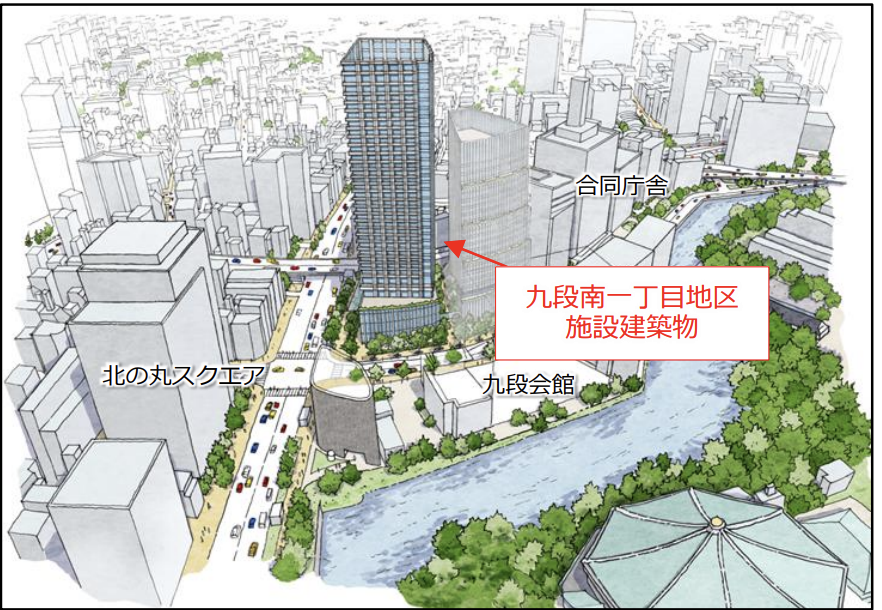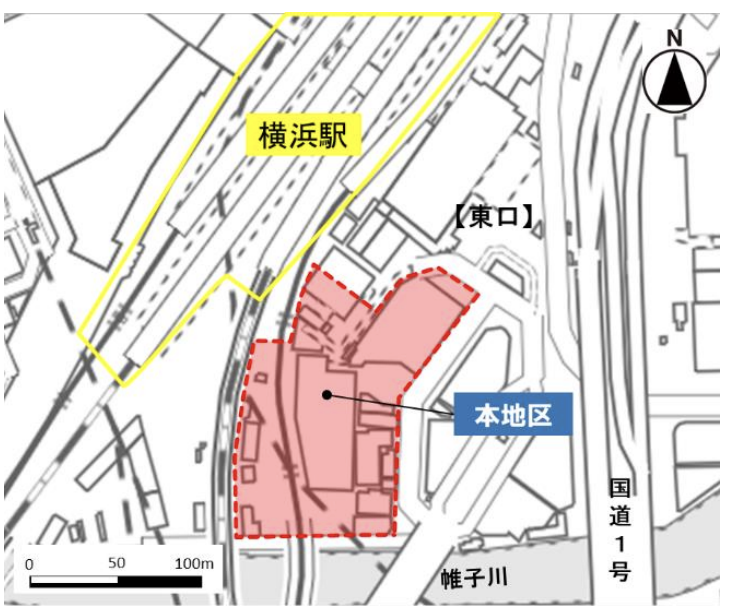For those of you who are considering the sale of real estate, questions such as "What flow should I proceed with?", "How long will it take?", and "How can I sell as quickly as possible?
As INA&Associates, we have supported the sale of numerous real estate properties. From our experience, we can tell you that selling real estate is not difficult if you have the proper knowledge and strategy.
In this article, we will explain in detail from an expert's perspective the overall flow of real estate sales, the average time it takes to sell, and practical tips to achieve an early sale. We will strive to provide highly practical information for those who are thinking about selling real estate in the future.
Basic Flow of Real Estate Sales
The sale of real estate proceeds through multiple steps, from the preparation stage to the completion of delivery. By understanding each step, a smooth sale can be achieved.
Overview of the entire process from preparation to delivery
The real estate sales process can be broadly categorized into the following eight steps.
| Steps | Contents | Approximate time period | Main tasks |
|---|---|---|---|
| 1. preparation for sale | Preparation of necessary documents and organization of the property | 1-2 weeks | Preparation of title deeds, property tax notices, etc. |
| 2. request for appraisal | Request an appraisal to a real estate company | 1 week | Request for appraisal to multiple companies, comparison and review |
| 3. brokerage contract | Conclusion of a contract with a real estate company | 1 week | Conclusion of a mediation contract and determination of a sales strategy |
| 4. sales activity | Advertisement and correspondence of preview | 1-6 months | Publication of housing information and guidance of a purchase desire person |
| 5. purchase and sale contract | Conclusion of contract with buyer | 1 week | Adjustment of contract terms and preparation of contract |
| 6. preparation for settlement | Preparation for delivery | 1 month | Completion of mortgage procedures and other formalities |
| 7. settlement and handover | Transfer of ownership and handover of keys | 1 day | Settlement of remaining balance, registration procedures, handover of property |
| 8. tax return | Tax procedures | February-March of the following year | Declaration of transfer income and tax payment |
Detailed explanation of each step
Step 1: Preparation for sale
Sufficient preparation is essential for a successful sale. First, it is necessary to prepare the necessary documents, such as the deed of title (registration identification information), property tax notice, building permit, and design drawings.
It is also important to prepare the condition of the property. Cleaning, as well as addressing any minor repairs, will give a good impression to potential buyers.
Step 2: Request an appraisal
In order to set a fair sale price, an appraisal is requested from multiple real estate companies. There are two types of appraisal methods: "desk-based appraisal," in which an approximate price is calculated from the appearance and location of the property, and "home visit appraisal," in which the property is actually visited and examined in detail.
In order to obtain an accurate appraisal value, we recommend that you request an on-site appraisal. By comparing the assessed value results of two or more companies, you can grasp a proper market price.
Step 3: Mediation contract
An underwriting result and the contents of each company's proposal are examined, and a mediation contract is concluded with the real estate company which can be trusted. There are three kinds of mediation contracts: "under-exclusive-contract exclusive duty mediation," "full-time mediation," and "general mediation.
Each has merit and demerit, but by selecting under-exclusive-contract exclusive duty mediation or full-time mediation, you can expect a real estate company's active sales activities.
Step 4: Sales activity
A real estate company posts property information on a portal site or its own site, and solicits purchase desire persons. During this period, handling previews is an important factor.
During the viewing, it is important to keep the property in a clean condition to maximize its appeal. In addition, answering questions from prospective buyers accurately and sincerely will help build a relationship of trust.
Step 5: Sales Contract
When a prospective buyer is found and agreement is reached on price and terms, a purchase agreement is signed. The contract will specify the purchase price, delivery date, and contract terms.
At this stage, a deposit is received and the contract is concluded. Since a penalty fee may be charged for cancellation after the contract has been signed, the terms of the contract should be carefully considered.
Step 6: Preparation for settlement
After the purchase contract is concluded, preparations are made for settlement. If the buyer intends to use a mortgage loan, the financial institution will conduct an examination.
On the seller's side, preparations for mortgage cancellation procedures, moving arrangements, and settlement of utility bills will be made.
Step 7: Settlement and delivery
On the day of settlement, upon receipt of the balance due, the transfer of ownership is registered and the keys to the property are handed over to the buyer. A judicial scrivener will generally be present to handle the registration procedures on behalf of the buyer.
Step 8: Final tax return
If transfer income is generated from the sale of real estate, it must be declared on the next year's tax return. Since the calculation of transfer income tax is complicated, we recommend that you consult a licensed tax accountant.
Average time required to sell real estate
When considering the sale of real estate, "how long will it take to sell" is one of the most important questions. The time required to sell depends on a variety of factors, including property type, location, pricing, and market conditions.
Time-to-sale data by property type.
The following is the average sales period for each property type based on actual market data.
| Property Type | Average sale period | Shortest period | Longest period | Main Characteristics |
|---|---|---|---|---|
| Condominiums | 3-4 months | 1 month | 12 months | Location and age have a significant impact |
| Detached house | 4-6 months | 2 months | 18 months | Condition of land and building is important |
| Land | 6-12 months | 3 months | 24 months | Differences are large depending on zoning and shape |
| Investment property | 3-8 months | 1 month | 15 months | Yield is the criterion |
Comparison of time to sell by region
The time to sell varies greatly depending on the region. The higher the demand for the area, the shorter the time to sell.
| Area Classification | Average period of sale | Characteristics |
|---|---|---|
| Central Tokyo (Central Tokyo 23 wards) | 2-3 months | Demand is stable and short-term sales are possible |
| Metropolitan suburbs | 4-6 months | Difference in time frame depending on transportation accessibility. |
| Local city center | 4-8 months | Influenced by local economic conditions |
| Rural suburbs and underpopulated areas | 6-24 months | Tendency for limited and prolonged demand |
Key Factors Affecting Sale Time
1. appropriateness of pricing
The most important factor is pricing. If the price is set higher than the market price, the sales period will be prolonged. On the other hand, if the price is set at an appropriate level or slightly lower, it will be possible to sell the property quickly. 2.
2) Condition and attractiveness of the property
The attractiveness of the property itself, such as the age of the building, condition of facilities, floor plan, and exposure to the sun, will greatly affect the selling period. First impressions are especially important, and the impression at the time of viewing directly leads to a successful contract.
3. location conditions
Distance from stations, the surrounding environment, school zones, access to commercial facilities, and other factors cannot be changed, but they have a significant impact on the duration of the sale.
Market Environment
Trends in the overall real estate market, interest rate levels, and economic conditions also affect the time frame for a sale. In a seller's market, sales can be expected in a short period of time, but in a buyer's market, sales tend to take longer.
5. sales strategy and advertising activities
The real estate company's sales ability, advertising strategy, and network are also important factors. Effective sales activities allow you to reach more potential buyers.
Practical tips for selling real estate quickly
Based on our many years of experience, here are some specific ways to achieve a quick sale. By practicing these tips, you can expect to shorten the time required for a sale.
Key points for setting an appropriate price
Accurate understanding of market price
The most important point for an early sale is proper pricing. Begin by obtaining assessments from multiple real estate companies to accurately grasp the market price.
If there is a range in assessed value prices, confirm the reason in detail and refer to the price with the most persuasive rationale. Generally, setting the price 5-10% lower than the average assessed value will result in a quicker sale.
Strategic Pricing
Pricing with a psychological price range in mind is also effective. For example, setting the price at 29.8 million yen instead of 30 million yen will increase the number of times the property appears on search sites.
Also, by rounding down fractions, you can leave room for negotiation and make the price appear more attractive to potential buyers.
How to maximize the attractiveness of a property
Improve First Impressions
The first impression at the time of viewing directly affects the closing rate. It is important to prepare the property with attention to the following points
- Thorough cleaning: Clean every nook and cranny, including water, windows, floors, etc.
- Tidiness: Create a clean and tidy space with minimal signs of life.
- Lighting: Ensure adequate lighting to create a bright impression.
- Odor control: Eliminate household and pet odors to maintain a sense of cleanliness.
Minor repairs and improvements
Large-scale renovations are often not cost-effective, but minor repairs can be effective.
| Repair items | Approximate cost | Effectiveness |
|---|---|---|
| Partial replacement of wallpaper | 50,000-150,000 yen | Improvement of cleanliness |
| Cleaning of water areas | 30,000-80,000 yen | Significant improvement of impression |
| Tatami mat replacement | 30,000-60,000 yen | Improvement of impression of Japanese-style room |
| High-pressure cleaning of exterior walls | 50,000-100,000 yen | Improvement of exterior appearance |
Home Staging
For vacant rooms, home staging to place furniture and accessories is also effective. It helps people visualize their living environment and improves their willingness to purchase.
Effective sales strategy
Disseminate information through multiple channels
Utilize multiple sales channels to reach as many potential buyers as possible.
- Real estate portal sites: Listings on major sites such as SUUMO, HOME'S, at home, etc.
- Real estate company networks: Registration with the Real Estate Information Network (RAINS)
- SNS/websites: Information dissemination through the real estate company's own website and SNS
- Flyers and billboards: Localized advertising activities
Optimize the viewing process
In order to maximize viewing opportunities, the following points should be considered
- Flexible scheduling: accommodate viewings on weekends, holidays, and evenings
- Multiple simultaneous showings: Effective showing method that takes advantage of the competitive mindset
- Provide detailed property information: Aggressively promote the surrounding environment and convenience of living.
- Accurate answers to questions: Eliminate concerns and doubts of prospective buyers
Smooth negotiations with prospective buyers
It is important to be flexible in negotiating prices and adjusting terms and conditions.
- Leaving room for negotiation: Consider the scope of negotiation when setting the initial price
- Flexibility in terms of terms and conditions: adjust the timing of delivery and ancillary facilities.
- Make decisions quickly: Respond quickly to proposals from prospective buyers.
- Build win-win relationships: Find mutually beneficial terms
Working with a reliable real estate agent
To achieve a quick sale, it is essential to work with an experienced and reliable real estate company.
The key to selecting the right company is to comprehensively evaluate their track record in the area, their sales capabilities, the expertise of their staff, and their communication skills.
At INA & Associates, Inc., we are committed to supporting our clients in the sale of their properties by leveraging our extensive experience and unique network. We propose optimal sales strategies that take advantage of the characteristics of each individual property and strive to achieve an early sale.
Conclusion
Selling real estate is not a difficult process with the right knowledge and strategy. To summarize the information presented in this article, the following points are important
Understand the sale process.
The real estate sale is a systematic process consisting of eight steps. Understanding the work required at each step in advance and planning ahead will ensure a smooth sale.
Setting an Appropriate Timeframe
The time frame for a sale varies greatly depending on the property type and location. The average period is 3-4 months for condominiums and 4-6 months for detached houses. By setting a realistic time frame, you can develop an appropriate sales strategy.
Practices for an early sale
Early sales can be expected through a combination of three factors: appropriate pricing, improving the attractiveness of the property, and effective sales strategies. Pricing, in particular, is the most important factor, and an accurate understanding of market prices is essential.
Cooperation with Specialists
Real estate sales are highly specialized transactions. By collaborating with reliable real estate agents, tax accountants, judicial scriveners, and other professionals, a safe and efficient sale can be achieved.
Proposal of Next Action
If you are considering selling real estate, we recommend starting with the following steps
- Confirmation and preparation of necessary documents
- Request assessments from multiple real estate companies
- Grasping the market price and examining pricing strategies
- Selecting a reliable partner
We, INA&Associates K.K., offer the best sale plan for each individual client's situation. If you have any questions or concerns regarding the sale of real estate, please feel free to contact us. Our experienced and professional staff will do their best to support the sale of your valuable assets.
Frequently Asked Questions
Q1: What are the costs involved in selling real estate?
A: The main costs involved in the sale of real estate are as follows
- Brokerage fee: Selling price x 3% + 60,000 yen + consumption tax (maximum)
- Stamp tax: affixed to the sales contract (varies depending on the sale price)
- Registration fees: registration of mortgage cancellation, etc. (including judicial scrivener fees)
- Transfer income tax: If there is a gain on the sale (tax rate varies depending on the period of ownership).
Generally, 4-6% of the sale price is a rough estimate. Please confirm the detailed fees in advance.
Q2: Can I sell a property with an outstanding mortgage?
A: Yes , it is possible to sell a property with an outstanding mortgage.
If the loan can be paid off with the proceeds from the sale, the mortgage will be canceled at the same time as settlement. If the loan cannot be paid off with the proceeds from the sale alone (overdraft), you can use your own funds to make up the shortfall or consider taking out a loan for resale.
It is important to consult with financial institutions and real estate companies in advance and consider the most appropriate method.
Q3: Is there any difference in price depending on the time of sale?
A: There may be a difference in price depending on the time of sale .
In general, demand increases during the months of February-March and September-October, when people are relocating or going to school, and you can expect to sell your property at favorable terms. On the other hand, the market tends to stagnate during the year-end and New Year holidays and summer months.
However, the degree of influence differs depending on the location and type of property, so a comprehensive judgment based on market trends is necessary.
Q4: Are there any points to keep in mind during previews?
A: The way you handle the viewing greatly affects the closing rate.
In terms of preparation, thorough cleaning, organization, adequate lighting, and removal of odors are important.
In terms of response, answer prospective buyers' questions in good faith and actively promote the attractiveness of the property and the surrounding environment. However, it is also important to maintain a moderate sense of distance, as excessive sales can be counterproductive.
Q5: How should I choose a real estate agent?
A: Selecting a real estate agent is an important factor in a successful sale.
Selection criteria include a comprehensive evaluation of the company's track record in the area, sales ability, expertise of the person in charge, communication skills, and the specifics of the proposal.
We recommend that you request assessments from multiple companies and compare their explanations of the basis for their assessments and proposed sales strategies. In addition to price, another important criterion is whether or not a relationship of trust can be established.

Daisuke Inazawa
Representative Director of INA&Associates Inc. Based in Osaka, Tokyo, and Kanagawa, he is engaged in real estate sales, leasing, and management. He provides services based on his extensive experience in the real estate industry. Based on the philosophy that “human resources are a company's most important asset,” he places great importance on human resource development. He continues to take on the challenge of creating sustainable corporate value.

.png)













